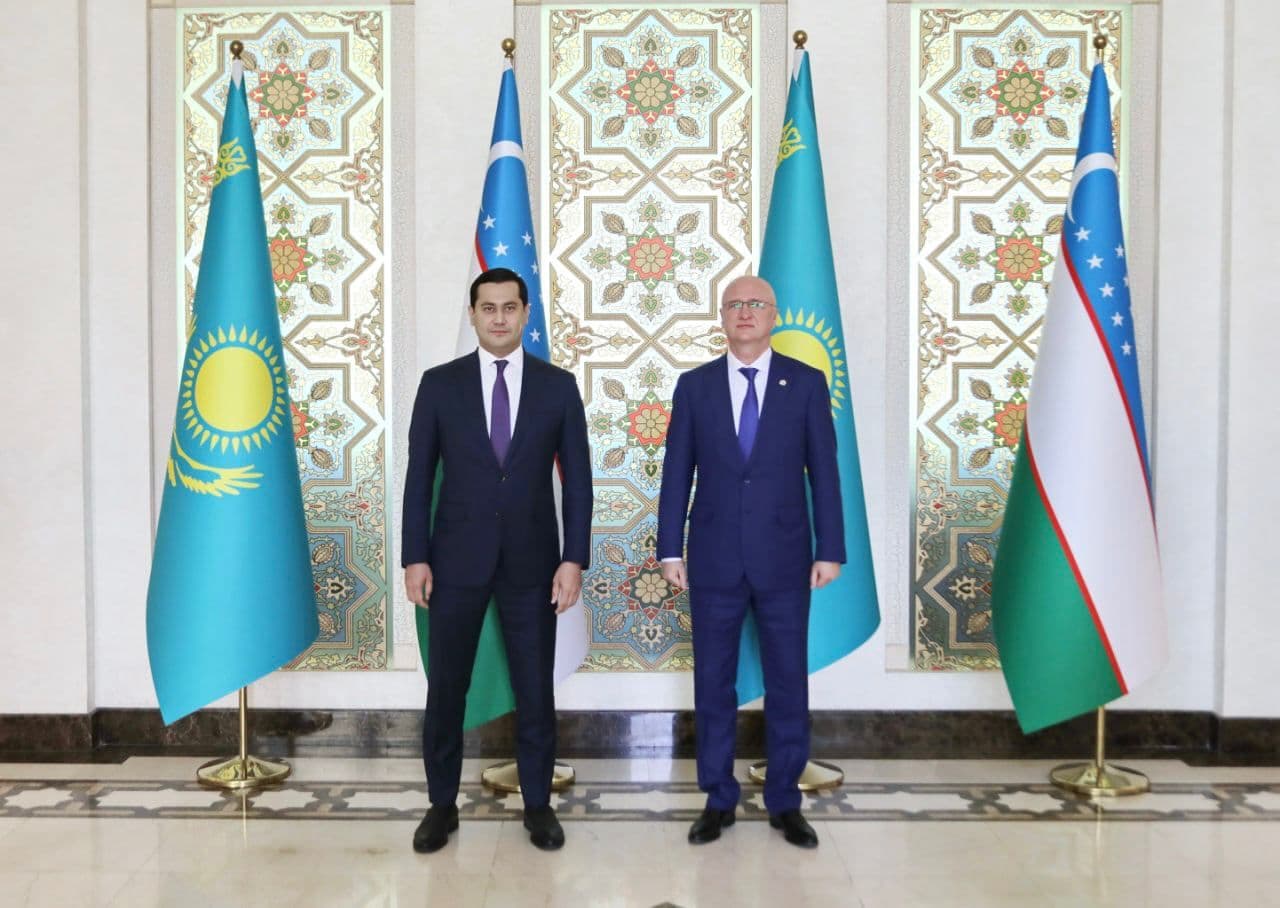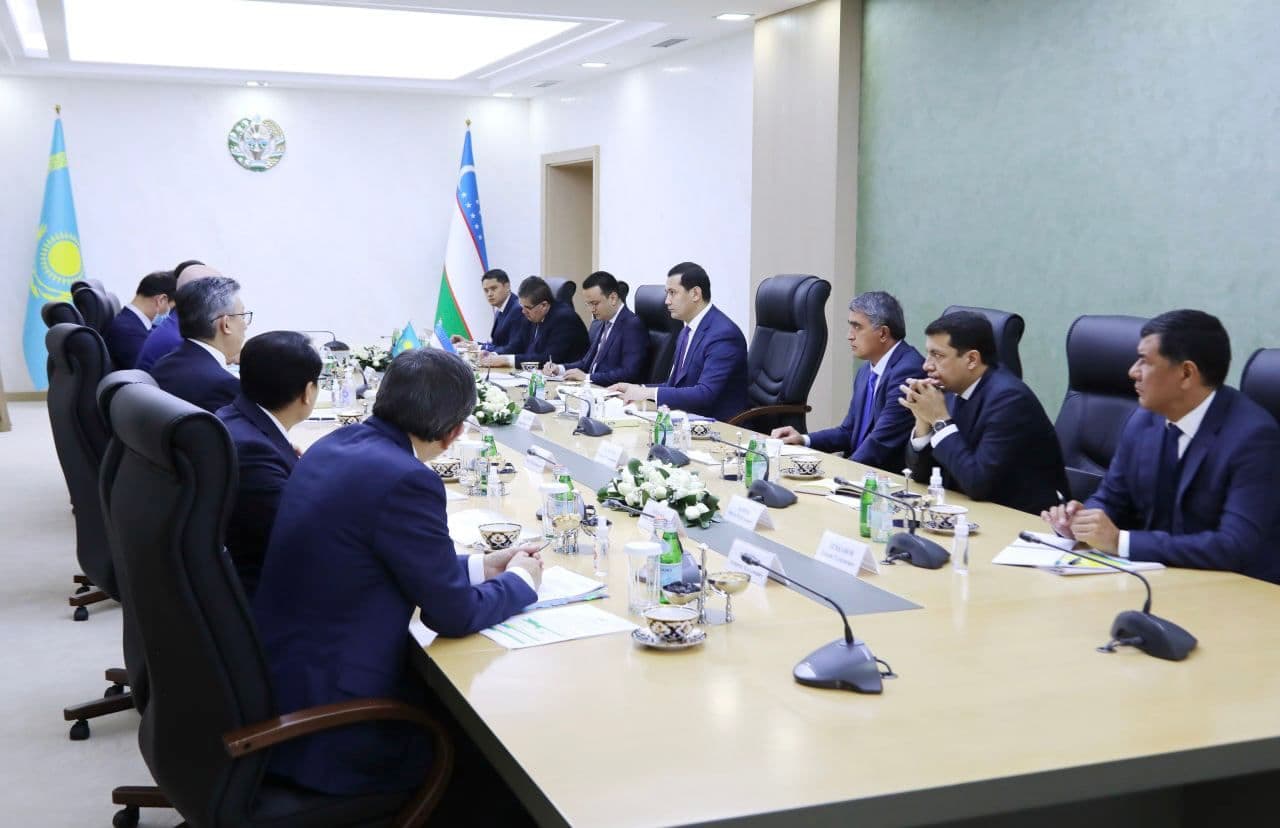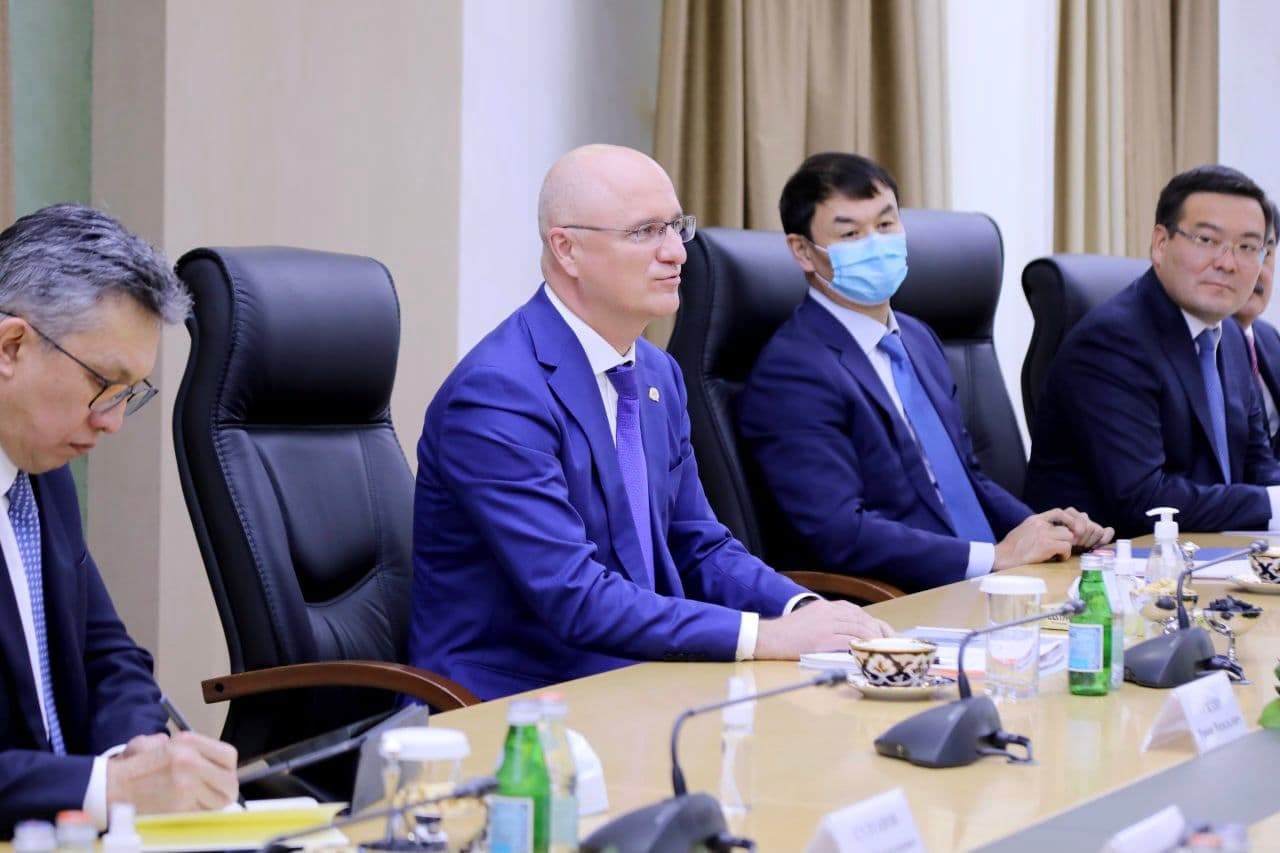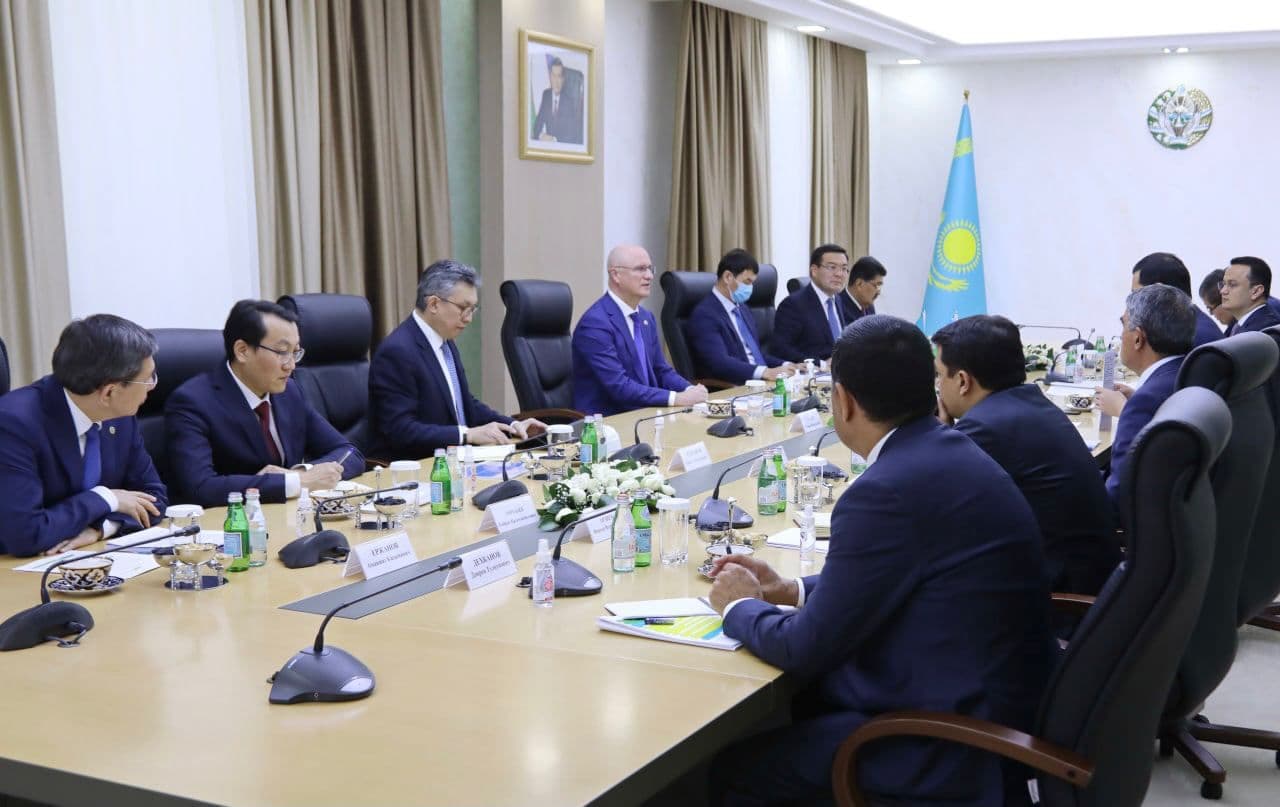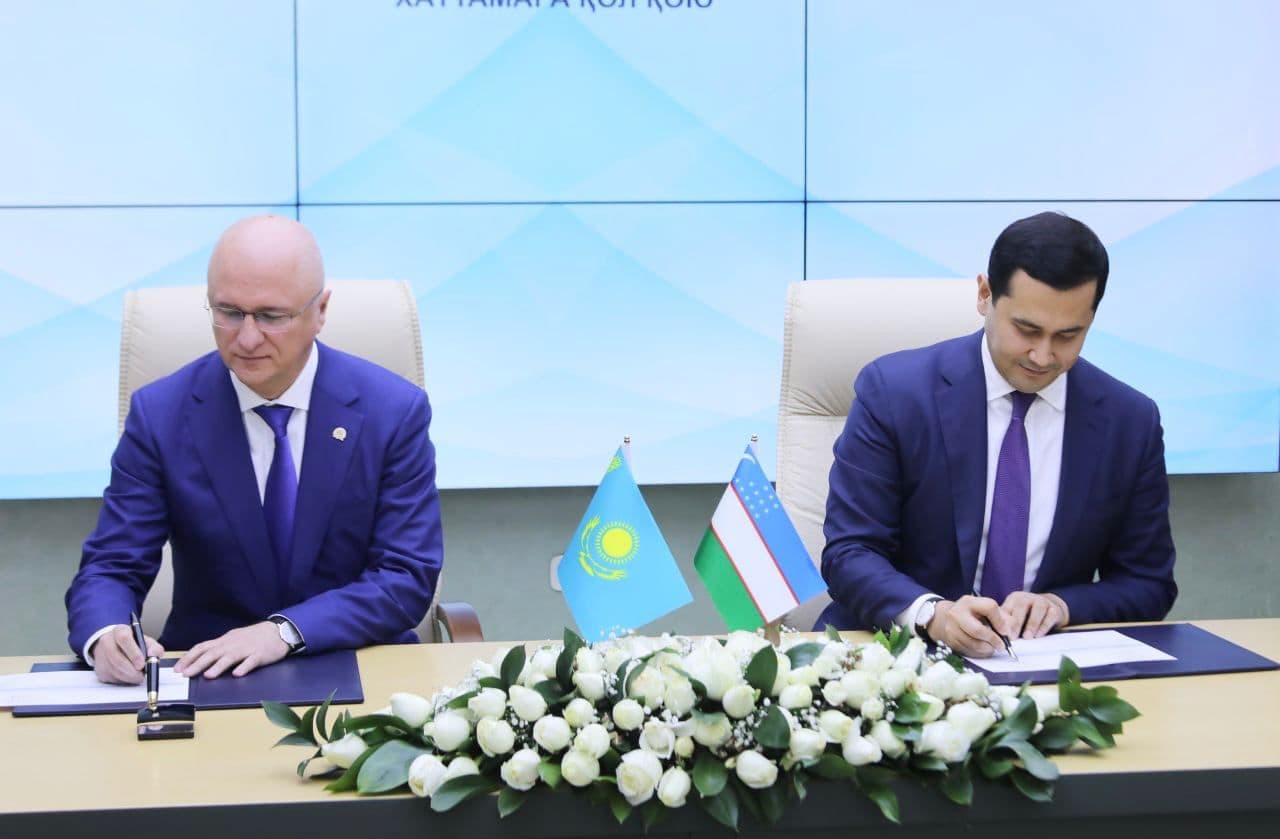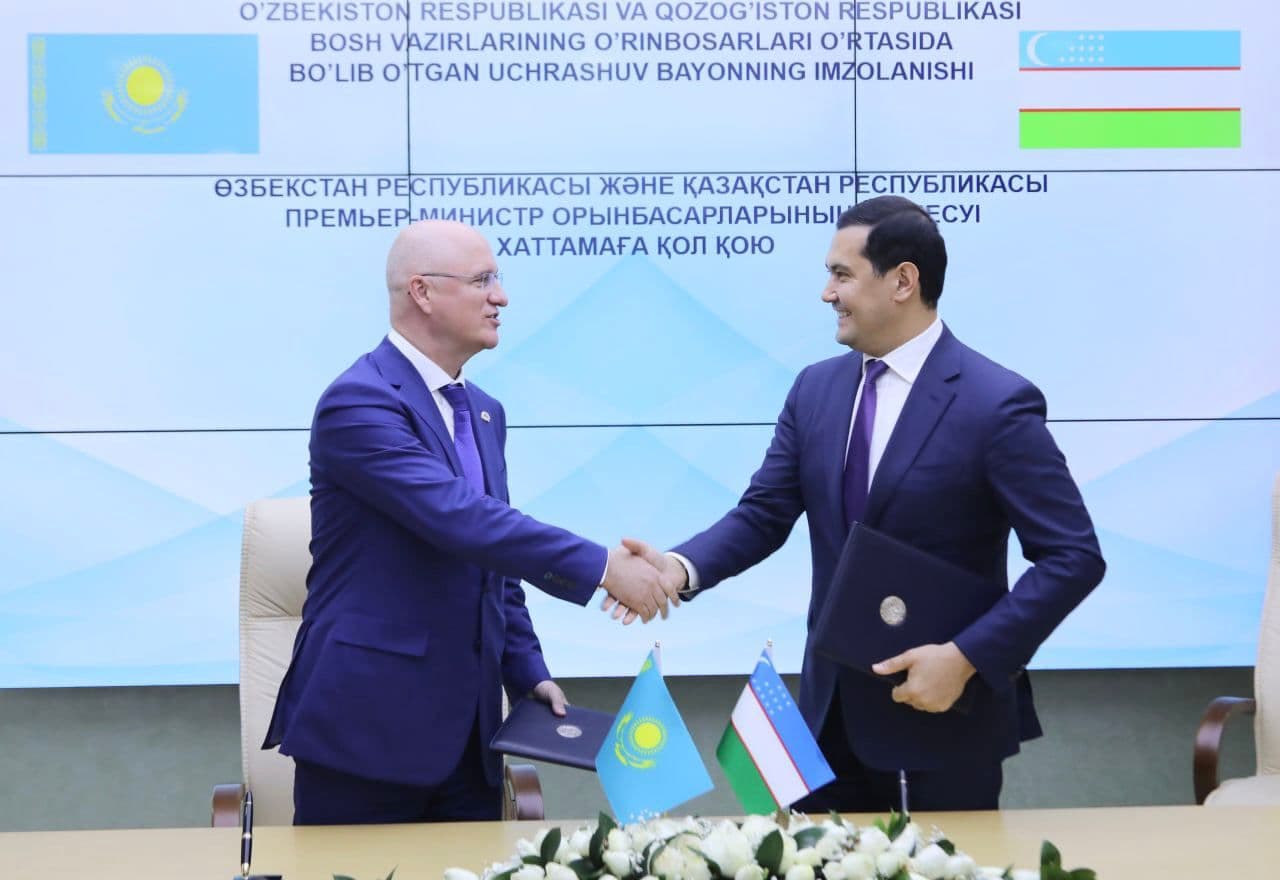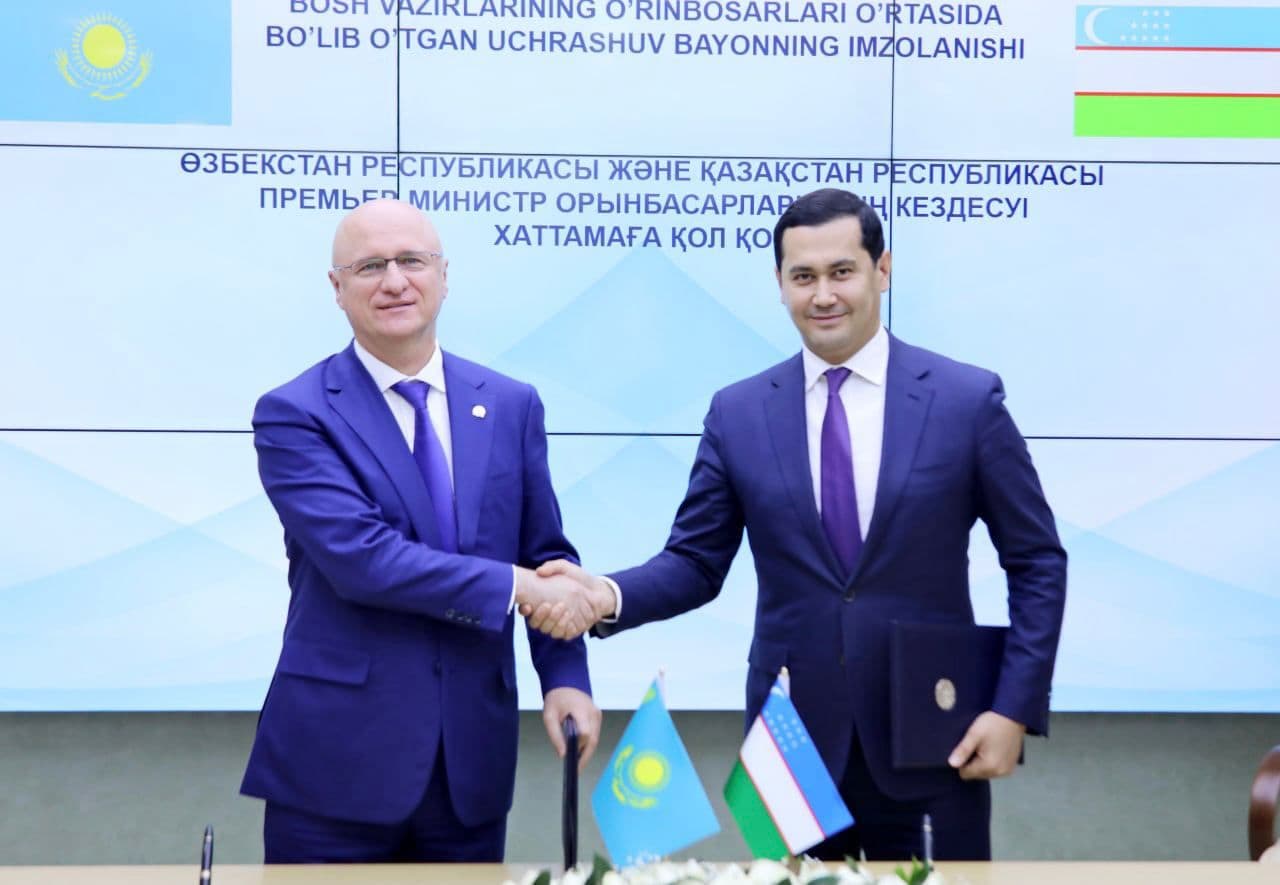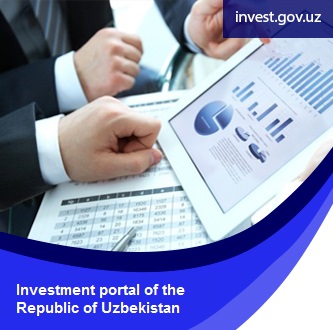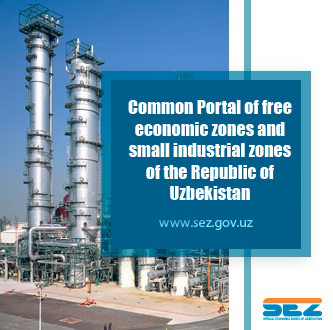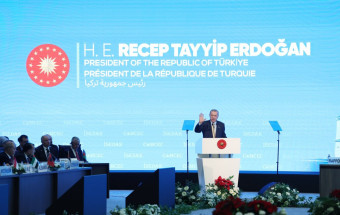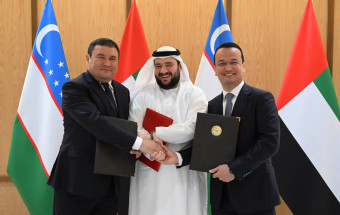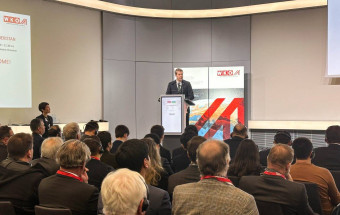Further steps to expand multi-faceted cooperation with the Republic of Kazakhstan
On November 2 this year, Deputy Prime Minister - Minister of Investment and Foreign Trade of the Republic of Uzbekistan S. Umurzakov met with Deputy Prime Minister of the Republic of Kazakhstan R. Sklyar during the visit of the Government Delegation of the Republic of Kazakhstan to the Republic of Uzbekistan.
The meeting provided for the discussion on the current state, as well as prospects for further strengthening and expansion of multifaceted cooperation in investment, trade, economic, industrial, and transport and logistics areas.
The parties considered the progress in interaction on deepening investment and industrial cooperation between the two countries. They proposed further steps to increase the number of joint investment projects to create production in mechanical engineering, agro-industrial complex, livestock, light, pharmaceutical and food industries.
The agenda paid particular attention to measures ensuring further growth in bilateral trade, diversification of its structure, as well as the development of new long-term forms of economic cooperation, including interregional interaction. The parties noted that the goal set by the heads of the two countries to increase trade turnover up to USD 10 billion can be achieved solely through the coordinated work of the relevant ministries and departments of the two countries aimed at comprehensive support in mutual trade, simplification and harmonization of customs regulations and standards, integration of information systems of customs services, construction of modern logistics centers, reconstruction and modernization of checkpoints at borders.
Here, they agreed to continue practical interaction to create International Center for Trade and Economic Cooperation "Central Asia" (ICTEC).
In order to ensure the smooth supply of goods, increase transit capacity and further develop mutually beneficial trade and economic cooperation, it was agreed that relevant ministries and departments of the two countries will take the necessary measures to implement the Plan of Practical Measures (Road Map) on expansion and deepening of cooperation between the Republic of Uzbekistan and the Republic of Kazakhstan.
Besides, there will be regular bilateral expert consultations to review existing issues and develop promising proposals to increase mutual trade, improve transport infrastructure and develop interregional cooperation.
The parties also negotiated on the active use of the opportunities provided by the Forum of Interregional Cooperation between the Republic of Uzbekistan, the Republic of Kazakhstan and the Business Council, as well as the active involvement of the private sector in the expansion of bilateral economic cooperation.
They stressed the priority significance of further development and strengthening of strategic partnership in the development of transport communications. The resumption of air traffic was positively assessed. The parties discussed possible opening of international bus service between major cities of Uzbekistan and Kazakhstan, construction of high-speed railway 'Turkestan - Shymkent - Tashkent', as well as transport corridor 'Uchkuduk - Kyzylorda'.
The negotiations touched upon prospects to expand cooperation in energy, education, healthcare, science, culture and tourism.
It should be noted that the meeting was preceded by an expert meeting of the heads of relevant ministries and departments, as well as a number of regions of the two countries. It reviewed cooperation projects in detail and outlined specific actions to accelerate them.
After the meeting, the Deputy Prime Ministers of the two countries approved the final protocol, as well as a Plan of Practical Measures (Road Map) to expand and deepen cooperation between the Republic of Uzbekistan and the Republic of Kazakhstan, which provides for 22 specific industrial cooperation projects. They also agreed that the Road Map will be constantly updated by new investment projects as they are developed in detail.
There also was an agreement on the creation of a joint working group, which on a regular basis will monitor the progress of the signed documents and make specific proposals to ensure their implementation in full.


